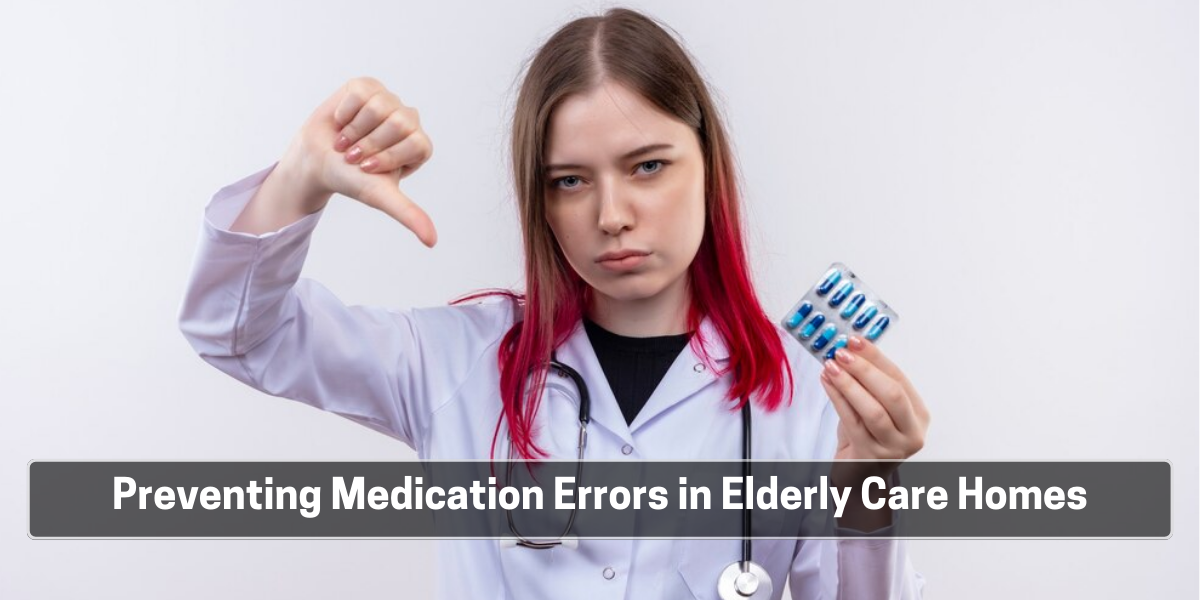Medication errors in elderly care homes can lead to severe consequences, such as unexpected side effects, interactions with other medications, and more. These errors can diminish the effectiveness of the prescribed treatment or even introduce new health complications. Therefore, it’s crucial to prevent medication errors in these environments. Here, we discuss several strategies for preventing medication errors:
- Comprehensive Medication Review
The first step to minimising errors is to review a patient’s medication regimen. A multidisciplinary team of healthcare professionals, including doctors and nurses, should closely monitor the patient’s prescriptions. This vigilance helps identify and mitigate potential drug interactions, ensuring safer and more effective outcomes. As medications can change periodically, these reviews should be conducted at regular intervals.
- Use of Electronic Medication Administration Records (eMAR)
Implementing electronic medication administration record systems can greatly improve medication safety in elderly care homes. eMAR systems enable healthcare professionals to electronically log and monitor medication administration. The largely automated process minimises transcription errors. These systems also feature alerts for caregivers about missed doses or potential drug interactions. With this real-time data, residents can receive timely care, enhancing their chances of recovery.
- Medication Reconciliation
Medication reconciliation involves verifying that a resident’s current medications match those listed in their prescriptions. Whenever a resident is admitted, transferred within the facility, or when there’s a change in medication orders, healthcare professionals should perform medication reconciliation to ensure accuracy and avert potential errors.
- Proper Medication Storage and Dispensing
It’s vital to uphold proper medication storage and dispensing practices to prevent errors. Medications should be securely stored in a designated area, accessible only to authorised personnel. Using medication carts or automated dispensing systems can help organise medications and diminish the risk of confusion.
- Clear Medication Labelling
To prevent misunderstandings and ensure accurate administration, medication labels must be clear and legible. They should display the resident’s name, medication name, dosage, administration method, and expiration date. Adopting standardised labelling practices can further decrease the chance of mistakes.
- Medication Education for Staff
Educating healthcare staff is important in averting medication errors. Personnel should receive consistent training on medication administration, potential drug interactions, side effects, and safe medication practices. Continuous education ensures that staff remain informed about best practices and consistently perform competently.
- Promoting Resident Involvement
Involving residents in the medication management process can refine the administration procedures. Medical professionals should explain medication regimens to seniors and address any related questions. Discussing potential side effects is also crucial. Engaged residents are more likely to notice and report discrepancies, promoting a safety-first culture in the care home.
- Reporting and Learning from Errors
Fostering an environment of open communication about medication errors is vital. When mistakes happen, it’s essential to understand their root causes and introduce corrective measures. By learning from these errors, care homes can prevent them from happening again, continually enhancing medication safety.
- Regular Medication Audits
Conducting regular audits of medication management processes can pinpoint areas needing improvement and ensure adherence to medication safety protocols. These evaluations can uncover potential system vulnerabilities, offering chances to bolster medication safety practices.
Many care homes in the UK are adopting eMAR systems to reduce medication errors. This is a positive trend, as eMAR systems can significantly improve medication safety by reducing transcription errors, providing real-time alerts for potential drug interactions or missed doses, and ensuring accurate record-keeping. To know more, book an eMAR demo with us today.







